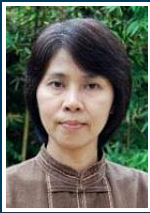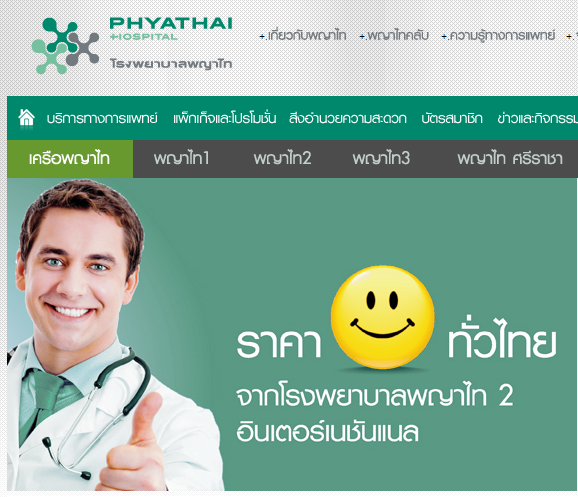A Supreme Court judgement will hopefully provide more security not only to Thai nationals but also to thousands of foreign patients coming to Thailand in the wake of the country’s self promotion as a world medical hub.
Victims of medical malpractice in Thailand have had little recourse when operations went wrong. The Thai Medical community is powerful and has in the past tended to be supported by the courts.
But after 11 years the civil court has dismissed a 100 million baht libel lawsuit brought by the Phayathai 1 Hospital against medical activist Preeyanan Lorsermvattana, from Chiang Rai.
It was a long and debilitating battle for Preeyanan who claimed her son was born with defects at birth because of medical malpractice and went on television to say so.
Preeyanan started the Thai Medical Error Network, of which she is the President. Below is part of their core statement.
THE PROBLEM
Despite Thailand’s attempts to promote itself as a hub for international and world-class medical care, the country has yet to codify patients’ rights, and there are few external review processes to correct or account for medical error. No concrete statistics on malpractice cases exist in Thailand, underscoring one of the most fundamental problems surrounding the issue: Lack of visibility, and a tendency to cover up medical mistakes. Unofficial estimates, however, place the number between 10,000 and 50,000 cases a year.
From ‘Marie Claire’
The lack of transparency in malpractice cases stems from a fundamental social phenomenon in Thailand: The extreme reverence given to members of the medical profession. As a result, the quality of medical care rarely comes into question by patients and rarely goes to the courts for suspected error. Doctors and hospitals are rarely held to account due to a lack of incentive to report error and no clear definition of what constitutes malpractice.
Thailand’s current legal system widens this gap between patients and the medical profession, valuing the protection of doctors and hospitals at the expense of patients’ rights. This is clearly illustrated by the lack of enforcement of weak existing legislation establishing a patient’s right to access their own medical records. While patients are theoretically allowed to request such records, in practice, these requests are systematically denied, especially in cases where there is suspicion of medical error. If not denied, medical records are routinely claimed to be “lost” or even altered to cover what could be perceived as medical error.
While Thailand was a signatory to a 2002 World Health Organization (WHO) agreement to make information on medical malpractice public, Thailand’s Ministry of Public Health has made little progress towards its implementation. Without accurate medical records to present as evidence, the cases of plaintiffs in medical malpractice lawsuits are greatly weakened.
If victims do go to court, they endure the frustration of battling a judicial system skewed towards protecting doctors and medical institutions. Government and private hospital administrations, as well as doctors, may routinely refuse requests to provide evidence (including medical records). Without such evidence, cases become a patient’s word against that of the hospital.
Given that many private hospitals are owned by high-profile political figures and protected by powerful legal teams, and that some enjoy the backing of government ministries, individual patients face an insurmountable legal struggle. Further complicating these issues is the widespread social opinion that those who sue for medical malpractice are greedy and capitalizing on their illness or disability. The few victims who enter the public spotlight through high-profile lawsuits suffer public stigma, are refused medical treatment by other doctors, and in some cases have been threatened.
Adding to the legal hurdles faced by victims is a push in recent years towards legislation that would exclude medical error from criminal litigation—effectively placing doctors and hospitals above the law. Health Ministry officials argue that criminalizing medical error has no possible benefit and may scare doctors from carrying out more delicate and risky surgical procedures due to risk.
The medical profession has resisted planned new laws being processed through the Thai Parliament. They fear a possible situation such as in the United States where patients could sue at the drop of a hat.
That is unlikely to happen in the near future and of course foreigners will of course still face some of the impracticalities of making formal complaints, such as travel and time, something they may not have as they will have come to Thailand for cheaper surgery presumably because they cannot afford it in their home countries.
But the Supreme Court and Appeal Court decision upon which it was based, has shown some remarkable common sense.
COMMENT: This is a landmark decision. The Supreme Court ruled that Ms Preeyanan’s remarks on her son’s case were a legitimate act intended to protect her interests. So you CAN speak out in Thailand.
Just how many court will follow this decision remains to be seen. Although the Thai criminal justice system is based on the British legal system not a lot of use seems to be made of case law. The Thais have also amended the laws to suit their own circumstances. While libel laws in most countries tend to favour the rich, no more so than Thailand. But recently there have been defeats against its abusers. Supinya Klanyarong beat Thaksin Shinawatra’s Shin Corp, now Preeyanan has won against Thailand’s largest hospital group, which plays the medical tourism card very strongly. But did they drag her through it.
PICK OF THE DAY – SYSTEMATIC ILLS OF THE TABLETS Bangkok Post Editorial
I loved this one. The giving of tablets to school kids is riddled with corruption it is ‘suspected’ Obvious solution is to give the students a voucher to buy one themselves – and if they want a better one they can pay more out of their own pocket. No way say education officials, those with better tablets will be lording it over others. Isn’t that how it works in Thailand






As with all things Thai, enter at your own risk. I tried making a complaint against a doctor who was just either incompetent, or trying to get me to pay 1000 baht per visit to obtain each dose in what needed to be a 5 dose course. This at " Five-Star" mall, er hospital. Completely ignored after 3 e mails and 6 phone calls.
The hospital claimed they had not authority as the clinic operates independently.
I knew what I needed and got the drugs from my vet.
Shoulda forced it with their alleged certification from ISO.
NO way would I let any member of my family come here for surgery, where you can buy a certificate, bribe , cheat and lie your way to a MD or PdD